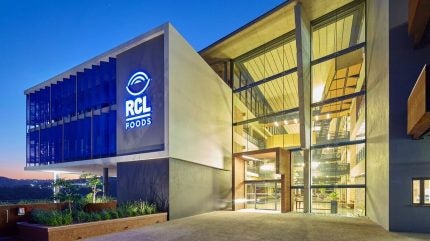
South Africa’s RCL Foods is progressing with the spin-off of its Rainbow Chicken business into a separate listed entity.
The plan has been in the pipeline since 2021 when company veteran Paul Cruickshank was elevated to the CEO role and implemented a new strategy to focus on the grocery, including pet food, and baked goods segments.

Discover B2B Marketing That Performs
Combine business intelligence and editorial excellence to reach engaged professionals across 36 leading media platforms.
RCL Foods, a branded and private-label manufacturer supplying the retail and foodservice channels, already completed the sale of its Vector logistics business segment last August. The company backtracked on a plan to exit its sugar operations in 2022.
Rainbow Chicken, as it is currently known, will be listed on the Johannesburg Stock Exchange with a target date of 26 June. A prospectus with the finer details will be published on 10 June.
Existing RCL Foods’ shareholders will receive one Rainbow share for each share they hold in the group business. Shares in the so-called unbundling currently stand at more than 890 million.
“Rainbow has made significant strides in delivering on its strategy to restore through-the-cycle profitability by means of an appropriately structured and sustainable operational base,” RCL Foods said in a filing today (4 June).

US Tariffs are shifting - will you react or anticipate?
Don’t let policy changes catch you off guard. Stay proactive with real-time data and expert analysis.
By GlobalData“The responses shown by Rainbow, particularly in relation to the successful implementation of a change of its chicken breed, which was completed in the current financial year, and improved operational resilience in the face of significant headwinds experienced recently, have considerably demonstrated the benefits achievable from an improved operational base.”
Under the Rainbow brand name, RCL Foods supplies fresh and frozen chicken, along with value-added products, to the retail and out-of-home channels.
Presenting first-half results in March through to the end of December, RCL Foods said: “Despite the negative impact of Avian influenza in the current period, Rainbow delivered an improved result due to the continued execution of the turnaround plan, which drove an improvement in agricultural performance and operating efficiencies, coupled with higher volumes and margins.
“The board is of the view that the unbundling of Rainbow will enable both businesses to pursue their respective growth ambitions, and investment theses, in a focused manner and with improved alignment on capital allocation priorities.”
Those results showed an 8.4% increase in group revenue for continuing operations to R20.1bn ($1.07bn). EBITDA rose 48.6% to R1.51bn and on an adjusted basis was up 32.4% at R1.43bn.
Headline earnings per share (HEPS) climbed 52.6% to 81.2 South African cents. Earnings per share (EPS) rose 67% to 90 cents.
In RCL Foods’ latest annual results issued in September, the group outlined the challenges from country-wide power outages, or load-shedding, and the pressures on Rainbow from rising commodity costs.
“RCL Foods has weathered a tremendously difficult 12 months, delivering a solid underlying performance in our core value-added business, with the overall group result negatively impacted by the continued unrecovered cost pressure in Rainbow.
“Whilst agricultural commodity input costs remain the biggest contributor to margin pressure for RCL Foods, load-shedding added direct costs to continuing operations of R158.3m for the current year and also impacted service levels, especially in our pet-food operations.”
Load-shedding weighed on RCL Foods’ annual EBITDA result, which fell 24.5% to R1.71bn. HEPS also dropped, down 45.7% at 60.6 cents. EPS declined 39.2% to 69.3 cents.
“The grocery operating unit result was the most impacted by load-shedding, which reduced pet-food production by up to 50% from November 2022 to April 2023,” the company said at the time.
“The baking business unit result was largely in line with the 2022 financial year, despite lower volumes overall and compressed margins in the bread, buns and rolls operating unit.”




